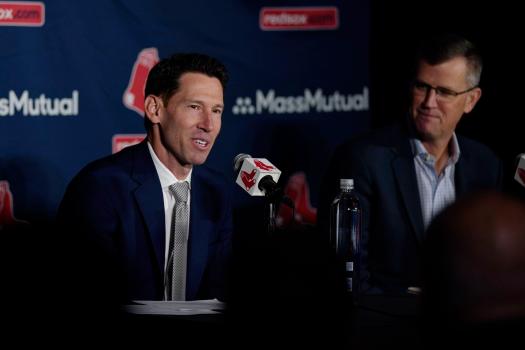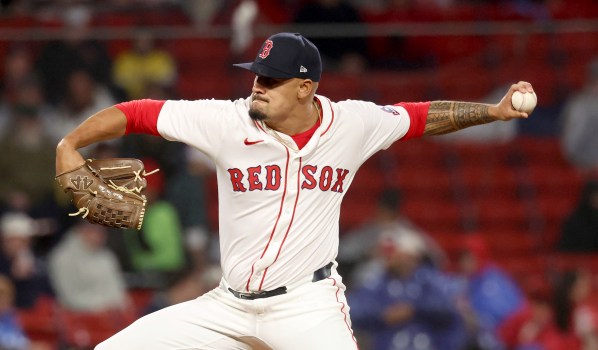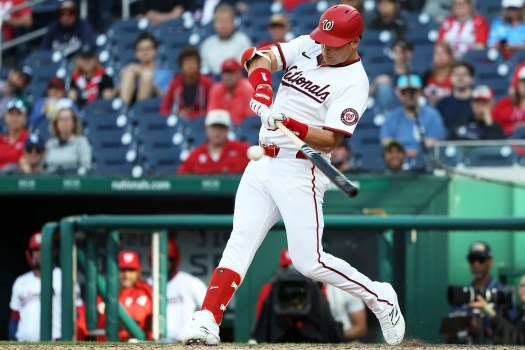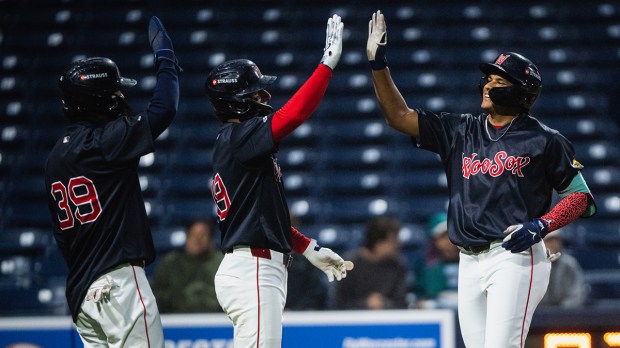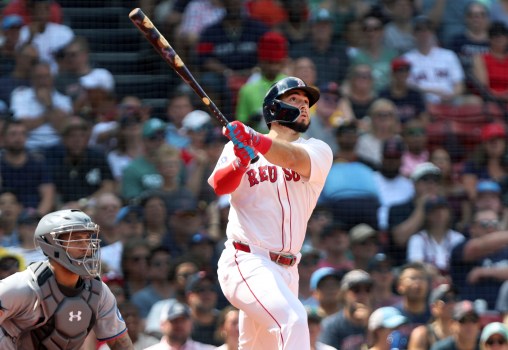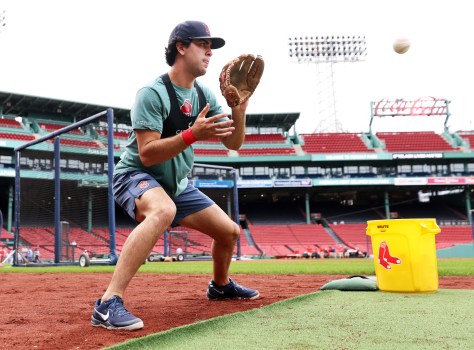“There was no mandate,” said Red Sox chief baseball officer Craig Breslow, of the San Francisco Giants taking on the entire remaining cost of Rafael Devers’ franchise-record contract. “The mandate is to assemble the best team that we possible could. And in order to do that, we needed to create a more functional roster and give certain guys more playing time, be able to rotate through the DH spot, potentially match-up there.”
The way Breslow and Red Sox president Sam Kennedy spoke in a nearly-45-minute Zoom press conference before Monday game in Seattle, Sunday’s stunning trade was about doing what was best for the team. Not an irreparable breakdown of the relationship between a storied franchise and its superstar, or Devers’ public rebuke of his employers, or trying to shed more guaranteed salary than Red Sox had ever committed to any player.
“It was a baseball trade,” Kennedy said, “because we did what we felt was in the best interests of the Red Sox on and off the field to win championships… it was a baseball trade, without question.”
Devers, in his purported refusal to return to playing a position, after the Red Sox relegated him to designated hitter in spring training, was apparently the logjam preventing the club’s youth movement from taking off, in terms of both on- and off-field aspect.
“We’re really excited about the injection of youth and the team-first attitude of that youth that’s coming into the organization and the culture that’s being built in this clubhouse,” Kennedy said.
“We would not have made this trade if we didn’t think it was best for the organization, and the vision and the beliefs and the culture that we’re trying to create,” Breslow said. “I think culture is always important, but I think it’s magnified when you have young players who are coming to the big leagues and trying to acclimate themselves to this lifestyle, expectations, demands, and to understanding that they need to convert their emotions from being happy to be here, to being willing to do anything that’s needed to win as quickly as possible.
“And we’re very deliberate about the environment that we’re creating to support these guys and making sure that the messaging is the right type of messaging so that three, four, five years from now when there’s another wave of really exciting young talent that’s infusing our Major League team, they have set the standard and it will be easy to pass on.”
Both Kennedy and Breslow declined to elaborate on what, specifically, made Devers no longer fit in their ideal baseball environment. Instead, as Red Sox leadership has done for most of the last half-decade, they tried to redirect focus to the future.
“This was not a decision that was made lightly or that was made suddenly, you know, you don’t trade Raffy Devers simply because you have a player coming off the (injured list) and you need to make a move,” Breslow said. “But we are mindful of balancing what we believe to be this kind of, really exciting young core, with the opportunity to play in the big leagues, and there were a number of paths that we felt we could explore in order to get a more kind of cohesive and more functional roster.”
When pressed about the fact that the trade came at a time when the Red Sox have been playing their best, most consistent baseball of the season, and hours after they completed a sweep of the Yankees in which Devers homered for his 500th career extra-base hit, Breslow admitted, “The timing was absolutely not great.”
In the short-term, he explained that without Devers, the Red Sox can rotate players through the DH spot. He suggested they might use the new financial flexibility to upgrade the starting rotation, bullpen, or first base before the midsummer trade deadline, noting that Triston Casas’ return is a long ways off.
For now, though, the Red Sox offense will undoubtedly be less productive without the man who was, until Sunday, the best designated hitter in the American League. That is the sacrifice the front office is willing to make for the future.
“When you move a player of Raffy’s caliber, when you take that bat out of the lineup, how could I sit here and say that we’re a better team? And I acknowledge that on paper, we’re not going to have the same lineup that we did,” Breslow said, “but this isn’t about the game that is played on paper. This is about the game that’s played on the field, and ultimately about winning the most games that we can. And in order to do that, trying to put together the most functional and complete team that we can.
“And so, I think when you consider the flexibility, the ability to give some of the young players some run, the opportunity to maybe repackage some of the resources and fill some voids in the roster as early as approaching this year’s deadline, and being really intentional about the environment that we create for these young players to thrive in, then I do think that there is a real chance that at the end of the season, we’re looking back and we’ve won more games than we otherwise would have.”
